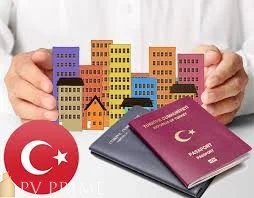Holding a Turkish passport can provide many advantages for travel, investment, and cultural and language relations. This article aims to highlight the main advantages of obtaining a Turkish passport.
The Advantages of obtaining a Turkish passport
Visa-Free Travel
Turkish passport holders can travel to more than 110 countries without a visa, or they can obtain a visa on arrival. This includes popular destinations in Europe, South America, and the Caribbean, as well as many countries in the Middle East, Central Asia, and the Caucasus region.
Dual Citizenship
Turkey allows dual citizenship, which means that Turkish passport holders can obtain citizenship in another country in addition to Turkey. This can provide additional travel and investment opportunities, as well as a sense of security and belonging in many countries.
Investment Opportunities
Turkey has a fast-growing economy and provides various investment opportunities for its citizens. This includes a range of sectors such as real estate, tourism, and manufacturing, as well as government incentives for foreign investors.
Cultural and Linguistic Links
Turkey has strong cultural and linguistic ties with many countries in the Middle East, Central Asia, and the Caucasus region. This can be useful for travel and work, as it can facilitate communication and cultural understanding.
Consular protection
As a Turkish citizen, you are entitled to consular protection while abroad. This means that if you encounter any problems while traveling or living abroad, you can seek help from the nearest Turkish Embassy or Consulate.
In general, obtaining a Turkish passport can provide lots of opportunities and benefits for travel, investment, and cultural relations.
It is important to consider the specific benefits that may apply to you, depending on your personal circumstances and the countries you plan to visit or live in.
What are the rights of Turkish citizens?
1. The right to reside in Turkey and benefit from all its services
The Turkish citizen enjoys the right to reside, move freely, and live in all Turkish lands, in addition to his full right to benefit from all basic services provided by the state, such as health care, and others.
2. The education rights
Turkish law provides the right to free education for any Turkish citizen who holds a Turkish identity, with compulsory free education until the end of the basic stage (the sixth grade), and in
the intermediate, university, and postgraduate stages, the Turkish government provides its services to Turkish citizens at symbolic and cheap prices with packages of support and scholarships.
3. The right to access health care
Turkish citizenship gives the right to obtain free health care to any citizen holding a Turkish identity. And Turkish government hospitals and primary care centers cover all cities and residential neighborhoods in Turkey.
4. The right to vote and run for elections
Under Turkish law, any Turkish citizen who is free from any judicial rulings, reaches the legal age, and complies with the legal conditions, has the right to run for elections or to vote in any civil, local, presidential or parliamentary elections.
5. The possibility of applying for all government jobs
The holder of a Turkish identity has the right to apply for all government jobs, inside and outside the country, according to his specialization, field, and conditions announced. In addition, he has the right to fully benefit from the advantages granted by the government job.
6. Obtaining a Turkish passport
Every Turkish citizen has the freedom to travel and move, according to which he is entitled to obtain a Turkish passport from the country, and to move with it between different countries of the world.
What are the duties of a Turkish citizen?
1. Flag service (military service)
Turkey is one of the countries that obliges its citizens to serve the flag (military service) when Turkish citizens reach the age of 21, and the law also includes new Turkish citizen holders. But if the foreigner obtains Turkish citizenship after he exceeds the age of 21, he is exempted from military service in Turkey. As it is possible to pay the allowance or postpone the service of the flag in Turkey according to certain conditions and cases mentioned in the law.
2. Homeland defense
One of the most important duties of Turkish identity holders (Turkish citizens) is to defend the homeland, by preserving national values and not cooperating externally with hostile countries or engaging in hostile actions against civil and internal peace or what threatens the vital and national interests of the country.
3. Respect the rights of others
The Turkish constitution guarantees freedom for all members of society to choose their form, dress, and religious belief, and Turkish law requires every citizen to respect the rights of the other citizen without diminishing the right of anyone.
4. Preserving security and public property
One of the duties of a Turkish citizen who holds a Turkish identity is to preserve and take care of the public property of the state and not to sabotage or damage public facilities or property. Maintaining security and not committing any legal violations are among the duties of the Turkish citizen towards his country.
5. Pay taxes and insurance fees
The obligation to pay taxes to the state periodically and insurance fees is one of the most important duties that Turkish citizens have towards the state, in order to continue providing, developing, and upgrading services.
Is obtaining Turkish citizenship an advantage? What are the easiest ways?
Turkey is an emerging economic market that provides valuable investment opportunities. It is also one of the countries that are witnessing an upward curve in its economic growth at the international and regional levels.
Therefore, Turkish citizenship is an advantage enjoyed by the holder of the Turkish identity, in the current and future situation, according to the opinions of many experts.
Like many country systems around the world, Turkey grants its nationality to foreigners who wish to do so through several conditions and laws in different cases.

 العربية
العربية Русский
Русский

